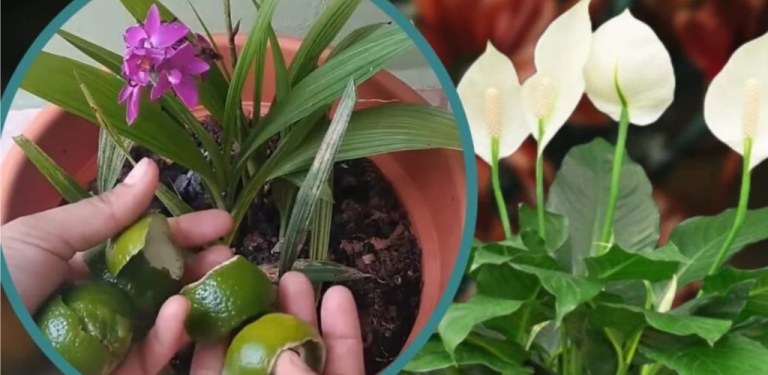ADVERTISEMENT
4. Enhances Plant Growth
The compounds in lemon peels help promote healthy plant growth by supporting the immune system of plants. This natural growth booster helps plants become stronger, more resilient, and better equipped to handle environmental stressors like drought or pests.
- How to Use: You can incorporate chopped lemon peels into your compost pile. As the peels break down, they will release nutrients into the compost, which can then be used to fertilize your plants.
5. Keeps Animals Away
Lemon peels are also known to deter larger pests, such as rabbits, squirrels, and cats, which can sometimes invade garden spaces. These animals dislike the strong citrus aroma, so using lemon peels can help keep them from damaging your plants.
- How to Use: Scatter fresh lemon peels around your garden or near plants that you want to protect. This can create a natural barrier that keeps animals at bay without the need for harsh chemicals.
Creative Ways to Use Lemon Peels in the Garden
Now that you know the incredible benefits of lemon peels for plants, here are some creative ways to make the most of them in your garden:
1. Compost Booster
Lemon peels make an excellent addition to your compost bin. They add organic matter and essential nutrients to the compost, helping to create richer, healthier soil for your garden. However, be mindful not to overload your compost with too many citrus peels, as they can make the mixture too acidic. A small amount is sufficient for a healthy balance.
2. Lemon Peel Tea for Plants
For a nutrient-packed plant tea, steep lemon peels in hot water for a few days, allowing them to release their vitamins and minerals. Strain the mixture, and use the tea to water your plants. This “lemon peel tea” gives your plants a gentle boost and helps them thrive.
3. Homemade Fertilizer
If you prefer to create a slow-release fertilizer, dry out lemon peels in the sun, then crush them into small pieces or grind them into a powder. Sprinkle this around your plants, ensuring it doesn’t come in direct contact with the stems. As the peels decompose, they will provide a steady stream of nutrients.
4. Pest-Control Sachets
Another way to utilize lemon peels in the garden is by creating pest-control sachets. Simply dry the lemon peels and place them in small mesh bags. Hang these bags near plants that are prone to insect infestation. The citrus scent will act as a natural repellent.
5. Mulch Alternative
For a fragrant and effective mulch alternative, chop up lemon peels and scatter them on top of the soil. As the peels break down, they’ll improve the soil while also keeping pests away.
Why You Should Stop Throwing Away Lemon Peels
Lemon peels are packed with natural, sustainable benefits for your garden. From enriching the soil and repelling pests to promoting healthy plant growth, they are an incredibly useful resource that can transform your gardening routine. By reusing lemon peels instead of discarding them, you’re not only giving your plants a little extra love but also reducing waste and contributing to a more sustainable lifestyle.
The next time you reach for a lemon, remember that the peel is just as valuable as the fruit. Don’t throw it away—put it to work in your garden! You’ll be amazed at the positive impact lemon peels can have on your plants and the overall health of your garden.
Conclusion
Lemon peels are much more than just scraps—they are an amazing, natural tool that can enhance the health and vitality of your plants. By using them to repel pests, enrich your soil, and promote growth, you’re adding a powerful, eco-friendly element to your gardening practices. So, from now on, hold onto your lemon peels! Your plants will thank you, and you’ll never look at lemon rinds the same way again.
ADVERTISEMENT
